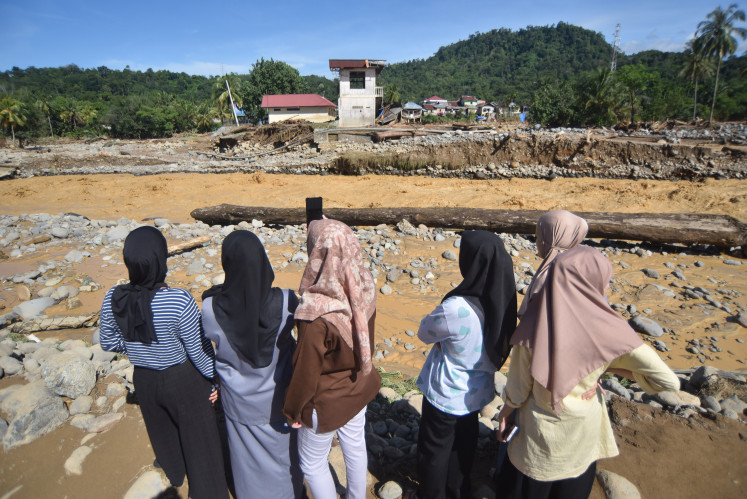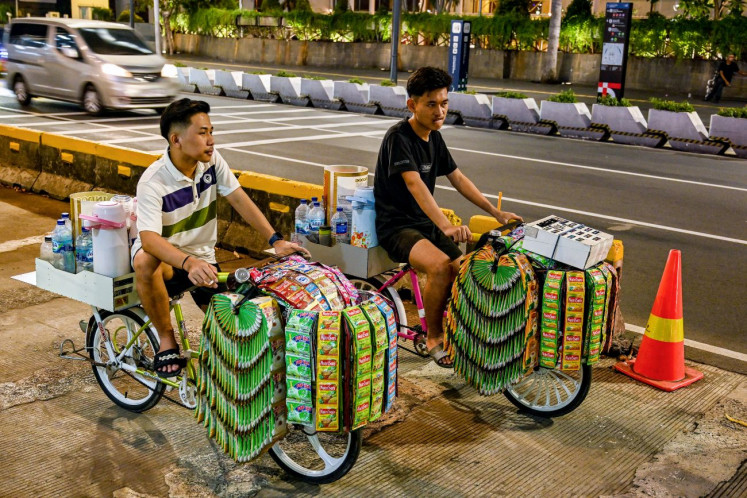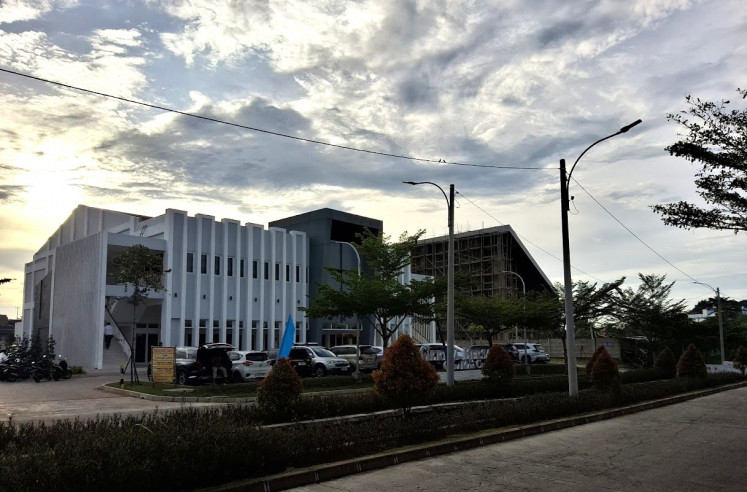Popular Reads
Top Results
Can't find what you're looking for?
View all search resultsPopular Reads
Top Results
Can't find what you're looking for?
View all search resultsUsing the best of Security Council membership for Palestine-Israel conflict
Now that Indonesia holds a non permanent seat in the UN Security Council, how can the country promote and bring peace to the Palestinians?
Change text size
Gift Premium Articles
to Anyone
S
ince taking office, President Donald Trump has issued many controversial policies and statements. In terms of the Palestinian-Israeli conflict, the United States has shifted to stronger support for Israel, most notably expressed by the relocation of US Embassy in Israel from Tel Aviv to Jerusalem.
Support for Israel was represented specifically in the United Nations Security Council. In a recent meeting, US ambassador to the UN Nikki Haley rigorously maneuvered to block a draft resolution submitted by Kuwait, which pleaded for international protection for Palestinians in Gaza after the decision to relocate the US embassy. US vetoed the resolution and proposed a revised resolution which implied heavy blame on Hamas for the surge of violence between Israeli official authorities and Palestinian protesters on the day of US’ embassy opening in Jerusalem. Kuwait had pleaded for greater promotion of peace and protection for the Palestinians instead of excessive use of force. Eventually, the US-drafted resolution was rejected by the majority of the Security Council member states.
On the other hand, Indonesia remains a strong supporter of the Palestinian cause. Now that Indonesia holds a non-permanent seat in the UN Security Council, how can the country promote and bring peace to the Palestinians?
This will be Indonesia’s fourth time as a non-permanent member as it had earlier served the two-year terms for the same position in 1973-1974, 1995-1996, and 2007-2008. Indonesia’s diplomatic record within the Security Council can be considered quite promising. During the last term, Indonesia held its rotating presidency under then foreign minister Marty Natalegawa.
After elected as a new non-permanent member of the UNSC for the 2019-2020 term on June 8, along with Germany, South Africa, the Dominican Republic and Belgium, Indonesia’s term begins from Jan. 1 2019. The US policy shift regarding Israel is clearly the greatest obstacle for Indonesia’s support for a free Palestine.
Since its candidacy, Indonesia has voiced a strong message in its commitment to contribute to global partnership, peace, security and prosperity. For instance in his address to a General Assembly session on the Middle East last year, Vice President Jusuf Kalla stated, “Palestine is at the heart of Indonesian foreign policy. Indonesia will continue to support Palestine.”
Indonesia’s position is encouraging peaceful talks towards resolving the Palestinian-Israeli conflict. As the world’s largest Muslim country and a founding member of the Organization of the Islamic Cooperation (OIC), Indonesia believes it can bring about successful amicable and peaceful conflict resolutions.
As a non-permanent member, Indonesia lacks veto rights which are only entitled to permanent members. Veto rights have historically been used by the permanent members to block any resolution considered to be against their favor. Thus Indonesia must ingeniously find ways to promote peaceful resolutions for the Palestine-Israeli conflict. As also stated by Kalla to the above UN General Assembly session, “Peace is never given. It has to be developed and nurtured.” This is the best chance for Indonesia to effectively used its role as a non-permanent member to develop and nurture peace for the Palestinians.
Amid rising support to Palestinians, Indonesia’s support for peaceful resolution to the generations-old conflict comes at the right momentum. Recent media coverages on the Gaza strip have highlighted again the suffering and violation of human rights. More countries are voicing peace talks to the conflict and promoting a two-state solution. Indonesia must and should be able to gather more support on any initiative towards peace to the Palestinians. The US is losing its teeth in the global arena, as obvious from the rejection of its latest proposed resolution on the issue.
Although the US strongly warned that it took names of those countries against its position in Israel, many strongly continued support to the Palestinians nonetheless.
Following Indonesia’s three previous terms as a non-permanent member of the UN Security Council, particularly the last, including its brief term as its president, Indonesia should be able to understand how the Council works and have the capacity to convene with other diplomats to promote its interests.
A rather controversial example of Indonesia’s diplomacy was shown in its maneuver on Iran’s nuclear issues. Indonesia supported Resolution 1774 imposing international sanctions against Iran for its nuclear proliferation program. However it then promoted a peaceful approach in resolving the issues by abstaining on the voting of Resolution 1884 in 2009 on a new round of sanctions against Iran. Indonesia believed Iran at the time had sufficiently cooperated with UN Security Council calls on its nuclear program. Yet such a position lacked support from other countries, leading to the approval of the new sanctions.
Therefore with a sufficiently strong record Indonesia should be upbeat towards its fourth term in the UN Security Council and confidently promote peaceful resolutions to the Israeli-Palestinian conflict.
It is maybe mere utopia to see the resolution of Palestinian-Israeli conflict in the near future. However Indonesia’s upfront promotion of peace should be able to change the dynamics within the council on the issue.
It will also be interesting to see Indonesia’s take on the non-proliferation of nuclear issues within the Security Council. Peaceful resolution to overcome nuclear proliferation tension would also be preferable rather than supporting sanctions and embargoes.
***
The writer is pursuing a double degree program of Master of Arts in political science (Non-thesis track) and international law and human rights at Ateneo de Manila University and United Nations-mandated University for Peace.










